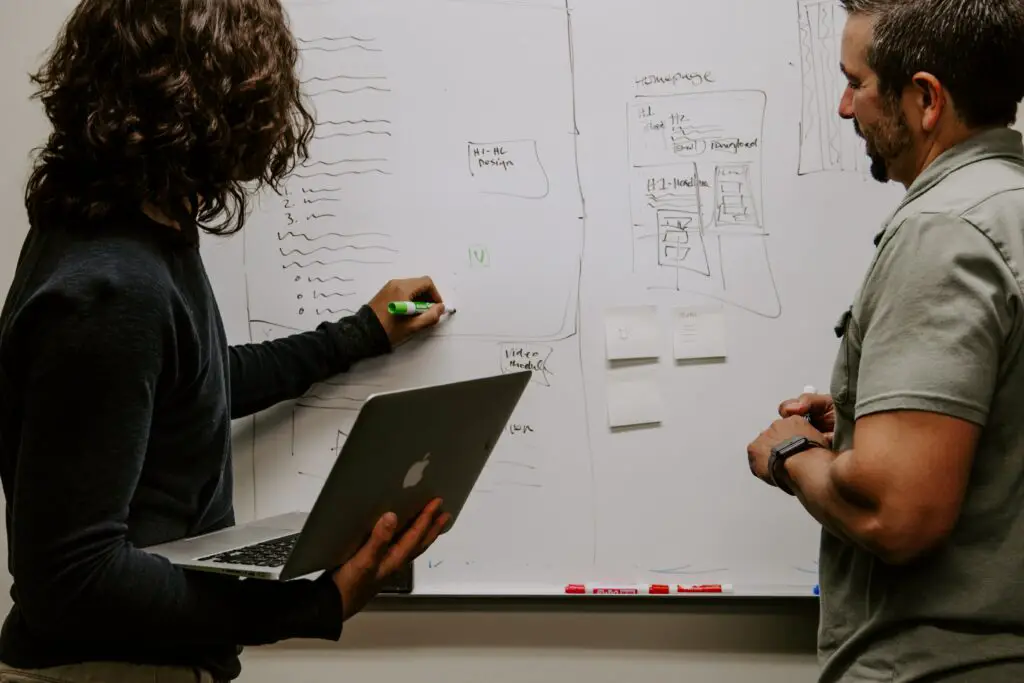Unraveling the Essence of Conceptual Frameworks
A Prelude to Understanding
The journey into comprehending the intricacies of conceptual frameworks is akin to navigating through an intellectual labyrinth, unveiling layers that shape the fundamental architecture of our perceptions. A conceptual framework is the bedrock upon which our understanding of complex ideas is built. It encapsulates the scaffolding of theories, assumptions, and concepts that underpin research, offering a roadmap for exploration within diverse disciplines. At its core, it’s a lens through which we decipher the intricate tapestry of information, forging connections between seemingly disparate elements, and weaving coherence into the fabric of knowledge.

Defining the Foundations
To embark upon this intellectual voyage, it’s imperative to grasp the foundational aspects of a conceptual framework. In essence, it serves as the blueprint, delineating the theoretical underpinnings and guiding principles that outline the boundaries and scope of a study. It operates as a conceptual map, providing a structured framework that aids in organizing ideas, concepts, and variables, fostering a cohesive understanding of the subject matter. Through this structured lens, researchers are empowered to contextualize their inquiries, enabling a systematic approach to problem-solving and hypothesis formulation. It’s not merely a static construct but a dynamic tool that evolves alongside emerging knowledge, adapting to the shifting landscapes of inquiry and discovery.
The Purposeful Essence
Delving deeper, the multifaceted purposes of conceptual frameworks come to light. Beyond its role as a roadmap, a conceptual framework serves as a guiding beacon, illuminating the pathways for researchers to navigate the labyrinth of information. It offers a lens to view the world, enabling the identification of patterns, relationships, and interconnections amidst the complexity of data. Moreover, it serves as a unifying force, consolidating disparate ideas into a cohesive structure, fostering a comprehensive understanding that transcends isolated fragments of information. Furthermore, it acts as a crucible for innovation, providing a fertile ground for the germination of novel ideas and theories, propelling the realms of knowledge forward.
Constructing the Elements
The intricate elements composing a conceptual framework are akin to the mosaic pieces forming a grand, cohesive picture. Theories, concepts, variables, and propositions interlace harmoniously, creating a cohesive narrative that guides inquiry. The theoretical framework, serving as the backbone, encompasses established theories and principles that lay the groundwork for exploration. Concepts, on the other hand, are the building blocks, representing abstract notions that define the parameters of investigation. Variables add depth, embodying the elements that can be observed, measured, or manipulated within the framework. And propositions, the bridge between theory and observation, are statements positing the relationships between variables, forging the core hypotheses within the framework.
The Evolutionary Nature
In the realm of knowledge, stagnation is antithetical. Similarly, conceptual frameworks are not static entities but dynamic constructs that evolve with the expanding horizons of understanding. They adapt and transform in response to new insights, accommodating the nuanced nuances brought forth by research and discovery. This adaptability is their strength, enabling the integration of novel perspectives and paradigms, fostering an ever-evolving landscape of knowledge. As disciplines progress, these frameworks serve as vanguards, absorbing innovations and accommodating shifts in ideologies, ensuring their relevance and applicability in an ever-changing world.
The Uncharted Horizons
Beyond its conventional realms, the significance of conceptual frameworks transcends disciplinary boundaries. It extends into the realms of practical application, permeating fields as diverse as business, psychology, sociology, and beyond. In business, conceptual frameworks sculpt strategic paradigms, guiding decision-making processes and delineating organizational structures. Psychology embraces frameworks to unravel the complexities of the human mind, elucidating behavioral patterns and therapeutic interventions. Sociology utilizes frameworks to decipher societal structures, shedding light on cultural dynamics and societal transformations. The versatility of conceptual frameworks renders them indispensable tools across multifarious domains.
The Illumination of Inquiry
In the grand tapestry of knowledge, conceptual frameworks emerge as the threads that weave coherence and structure. They are the compass guiding scholarly endeavors, providing direction amidst the labyrinth of information. As we navigate the complexities of research and exploration, these frameworks stand as pillars, offering not only structure but a holistic perspective that transcends isolated fragments of understanding. Their significance lies not just in their definitions but in their transformative potential, shaping the paradigms of thought and serving as catalysts for innovation and discovery.
Navigating the Continuum
The realm of conceptual frameworks beckons the inquisitive minds, inviting exploration and contemplation. From their foundational definitions to their far-reaching implications, they serve as the tapestry upon which the fabric of knowledge is woven. As we traverse the uncharted territories of inquiry, these frameworks stand as stalwarts, illuminating the path and fostering a deeper comprehension of the intricate tapestry that is human understanding.
